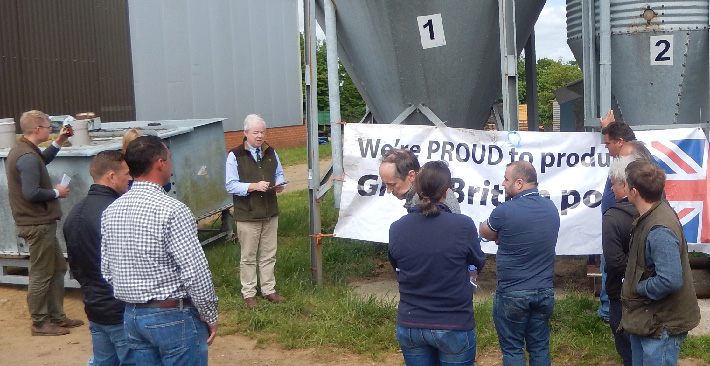With all the indecision, chaos and confusion about Brexit on the front pages, most of the population do not seem to know whether they are on foot or on horseback and the same applies to members of the Government and opposition.
Markets do not like unsettled times and a combination of poor demand for pigs as well as some significant fluctuations on the currency markets have made pig trading even more of an art than a science in the last few weeks.
The SPP continues its downward track losing another 0.73p to stand at 142.56p although the influential German producer price has managed to hang on at similar levels for nine weeks now and remains at €1.36, which is equivalent to a very low 122p in our money, and explains why EU pig meat imports are undercutting the UK market to a significant degree.
However, it is not a case of too many pigs but poor demand which is the underlying problem.
Weekly contribution prices have remained at generally similar levels within the 129-134p range but are still lagging well behind the SPP. Spot trade remains highly selective with very little going on and prices within a fairly wide range, with one off loads struggling to get much more than 130p or more but regular sellers generally achieving prices of between 138-143p.
Cull sow prices are also following the European stand on trend with quotes in the 60-64p range according to load size and despite the improvement in the value of the Euro which traded at 89.88p on Friday compared with 89.24p a week ago, this was not enough of an encouragement to persuade UK cull export sow buyers to put any more money on the table.
The weaner market remains in negative territory with the latest AHDB 30kg average down again to £43.24/head and the 7kg average also significantly lower at £33.97/head.
With very few spot transactions to report, weaners in the Red Tractor category remains very much a buyers’ market and painful for sellers and no signs that this trend is likely to improve until finished demand picks up and at the same time we might see something of a black hole in pig numbers coming forward due to last summer’s infertility problems.
Grain prices continue to be influenced by fluctuating currency values and futures prices have closed up by around £1.50/tonne a week, with London feed wheat for January quoted at £174.65/t, May at £179.35/t and July at £181.06/t. UK protein prices saw 48% Brazilian soya meal improve in value to £324/t although 34% rape meal eased back a touch from £211/t to £208/t.
On a more positive note, there may possibly be a small silver lining in the current COP cloud with reports that new crop EU wheat production could hit a 4 year high in the 2019/2020 period although changes of currency values could have a much greater effect on the cereal market as a whole.
And finally, reports of a recent swine dysentery outbreak in the Eastern Counties are another timely reminder of the potentially disastrous effect exotic diseases including African Swine Fever can have upon the viability of the whole UK pig industry and yet another reason why biosecurity measures need to be given top priority, with the three basic principles for successful pig farming being identified as “health, health and health”. Nasty bugs seem to thrive during periods of cold damp weather and yet another reason why producers need to be super vigilant on the biosecurity front.




